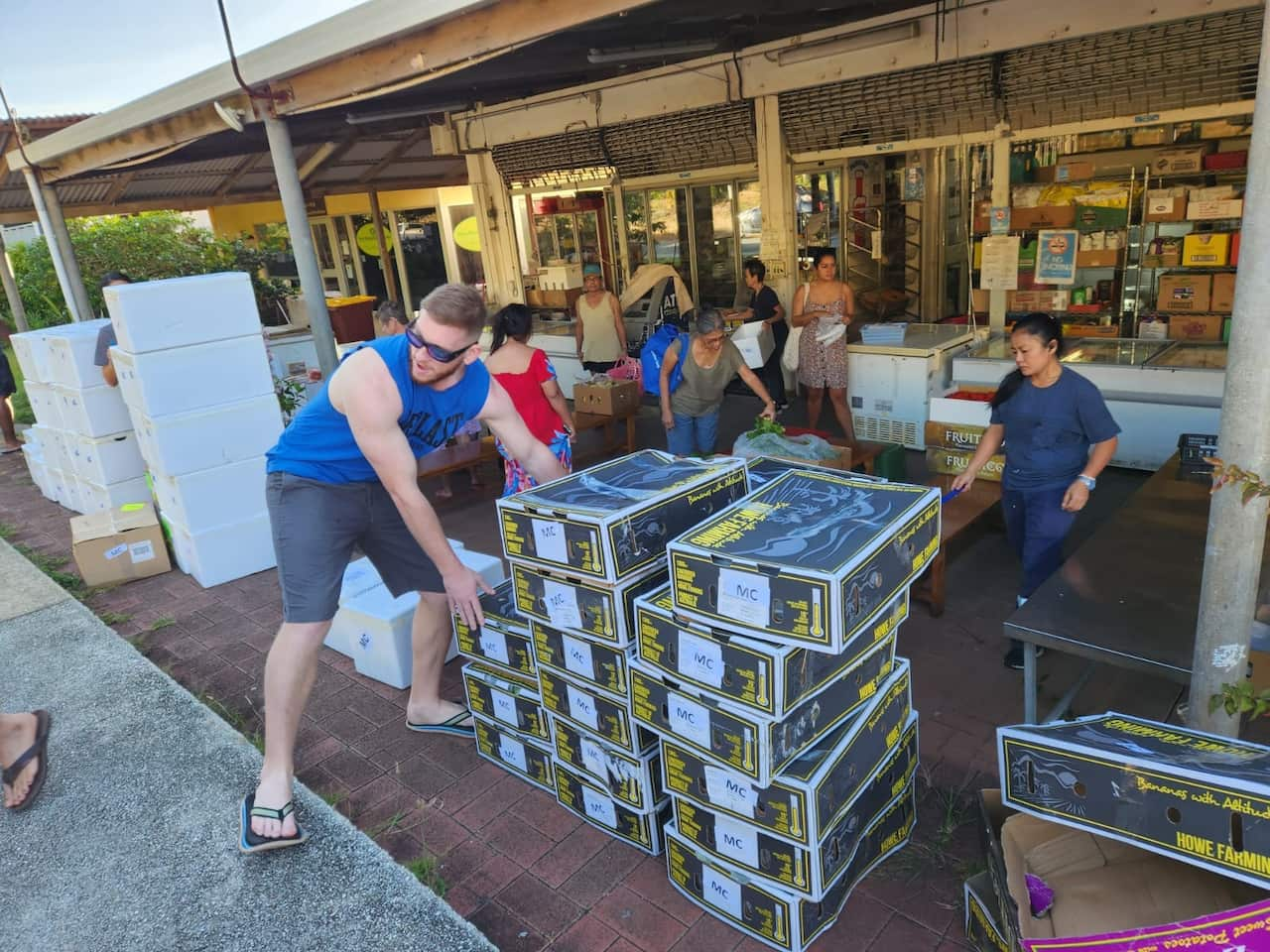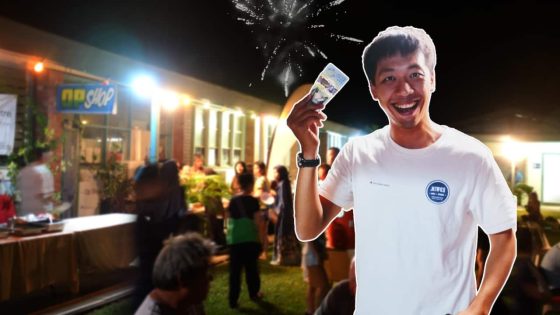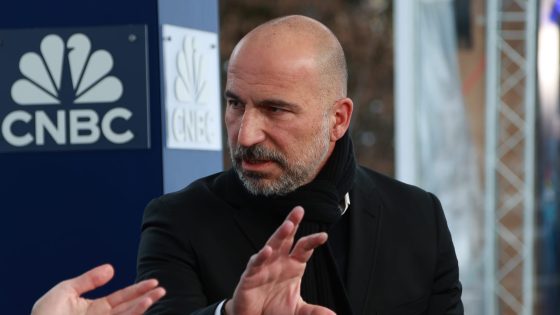Key Points
- Christmas Island is one of two places in Australia that mark Eid al-Fitr as an official public holiday. The other being the Cocos (Keeling) Islands.
- The majority of residents on the island are of Chinese ancestry (22 per cent).
- The history of Chinese on the island is ‘very long, poignant, terrible and inspiringly beautiful’, according to a resident.
Carlos Yang, 25, still remembers his first Hari Raya Puasa (Eid al-Fitr) experience as being full of surprises.
It was his first week in Australia, and the Taiwanese backpacker said he was lucky enough to find a $10 “Ang Bao” aka “Red Packet” under his seat at the Hari Raya Festival 2023 on Christmas Island.
“I was the only one at our table who got the money. I felt truly blessed,” Yang said.
Yang left the island in January this year and now lives in Perth. He said he kept the red envelope with him as a cherished memento as he continued exploring Australia.
I liked the little island, and it made me wonder how great the mainland Australian would be.
Carlos Yang
Situated as one of Australia’s external territories in the Indian Ocean, located 1550km north-west of the nearest mainland point, Christmas Island is the only place in Australia with two public holidays for Hari Raya and two more for Chinese New Year.
Christmas Island was named by Captain William Mynors of the Royal Mary on Christmas Day in 1643. Source: Supplied / Darren Wan
‘Little Singapore’
Hari Raya, or Eid, is the main celebration for the Muslim community marking the end of the fasting month of Ramadan.
Although there is no official record of when Eid was listed as an official holiday on Christmas Island, many believe it is a tradition that Christmas Island inherited from Singapore, where Eid also attracts a public holiday.
On 1 January 1958, sovereignty over Christmas Island was transferred from the British colony of Singapore to Australia, which purchased the island for £2.9 million.
Chris Su, Director of Planning, Governance and Policy for the Shire of Christmas Island who has lived on the island for decades, told SBS Chinese that Eid was not only a special occasion for Malay Muslims but also a “great time of the year” for the whole community.
“We accept invitations from our Muslim friends and families who invite us to go for Hari Raya in their homes,” he said.
“They prepare a whole range of festival food that you don’t really see throughout the year normally,” he said.
The 2023 Hari Raya Festival on Christmas Island. Source: Supplied
Even today, it is not unusual for newcomers to the 135 square kilometre island, to nickname it “Little Singapore”.
“Many Singaporeans who come here as tourists remark very quickly: ‘This is like Singapore 40 years to 50 years ago’, they can’t believe it,” Su said.
“You see the mix of faces – Malaysian faces, Chinese faces, Indian faces and a smattering of Western faces. That is very close to the general demographics of the population in Singapore as well.”
In addition, the island named after Christmas Day also used to use Singaporean law, currency and educational resources until the late 20th century, Su said.
It really does look more like Singapore than remote Western Australia.
Chris Su
Christmas Island resident Chris Su says island life is a small microcosm of what life is like in other parts of Southeast Asia. Source: Supplied / Chris Su
A vibrant Chinese community
In the minds of many Australians, Christmas Island is synonymous with a detention centre, which was decommissioned with all remaining detainees brought to the Australian mainland last October.
However, few people probably know that this far-flung Australian territory has been home to a vibrant Chinese community for over a century.
Chinese settlement began in the late 1800s when phosphate deposits were discovered on the island.
Hundreds of Chinese indentured labourers were shipped from the southern part of China, mainly from Fujian and Guangdong provinces, to mine phosphate.
A resident visits the grave of one of her ancestors at the Settlement Chinese Cemetery on Christmas Island. Source: AAP / BIANCA DE MARCHI/AAPIMAGE
Until now, hundreds of Chinese descendants are rooted in this land.
According to 2021 Census data, Christmas Island’s 1,692 residents boast a significant Chinese ancestry, with 22.2 per cent claiming heritage. This surpasses the next highest heritages of Australian (17 per cent) and Malay (16.1 per cent).
Data shows that about 60 per cent of islanders speak languages other than English at home, including Malay, Mandarin, Cantonese, and Min Nan (Fujian dialect).
Su said that he believed that the actual figure could be even higher because the language barrier prevented some people from participating in the Census.
It is actually closer to 50 per cent based on the local council electoral roll.
Chris Su
Mid-Autumn Festival celebrations on Christmas Island in 2023. Source: Supplied / Darren Wan
A ‘very long, poignant, terrible and inspiringly beautiful’ history
The story of the Chinese on Christmas Island was “very long, poignant, terrible and inspiringly beautiful”, Su said.
Darren Wan is a PhD candidate at Cornell University in the United States whose research focuses on citizenship issues and statelessness in the former British colonies in Southeast Asia, including Christmas Island.
Wan told SBS Chinese that life on the island was never easy for the early Chinese settlers due to racism.
Then, the Australian government introduced a series of policies to reduce the number of islanders acquiring Australian citizenship, one of them being the “force leave policy”.
“The phosphate company would sponsor pregnant women to go back to Singapore or Malaysia to give birth, for instance, rather than sponsor them to give birth in Australia,” Wan said.
Darren Wan (top R) visited Christmas Island in September 2023 for his PhD research, and he met Chris Su (fourth from L) there. Source: Supplied
In addition, families were also forced to take one month of leave after every 11 months of working on the island, Wan added.
“Because one of the Australian nationalisation law requirements is one year before you apply for Australian citizenship, you need to have a full 12 months of continuous residence [in Australia],” Wan said.
“That means they cannot apply for Australian citizenship [if they leave for one month],” Wan explained.
Su’s Singaporean father and Malaysian mother met on Christmas Island in the late 1970s.
He said that his mother was taken to Singapore to give birth to him in 1981 and then they returned to the island when he was one year old.
“The Australian government didn’t want me around … They didn’t want to grant us citizenship,” Su said.
Modern life on the island: $20 for a dozen of eggs
After decades of a dark past, life on the island is now simple and peaceful, according to those who spoke to SBS Chinese.
Owing to its remote location, it is largely dependent on outside transport for its essentials, including fortnightly air shipments from Perth and monthly boat shipments, but the cost is high.
Christmas Islander Kim Sung has been living on the island since 2012 and one of her jobs is to help unload groceries from aircraft.
Eggs by air are almost $20 a dozen, by boat about $15 a dozen, and they’re not fresh.
Kim Sung, Christmas Island resident
In addition to locals, the little island also attracts backpackers and temporary workers, including Kim Sung from Taiwan. Source: Supplied
To save on the cost of living, Sung said she would buy as much meat as she could while she was on holiday in Perth and then bring it back to the island to be portioned out and stored.
One time I bought three big boxes full of meat [in Perth] for just over $200, enough for a year
Kim Sung, Christmas Island resident
People unload essentials delivered to Christmas Island by aeroplane. Source: Supplied
Sung told SBS Chinese that despite the high price of groceries brought in by air, demand still outstripped supply.
“There are about 100 boxes in each air shipment delivered on a Friday night, and they are often sold out by the next morning,” she said.
During the COVID-19 pandemic, transport to the island was disrupted, with no supplies arriving for up to nearly three months, and there were no eggs on the island, Sung recalled.
“Now everyone learnt the lesson and has started to raise their own chickens,” she laughed.










